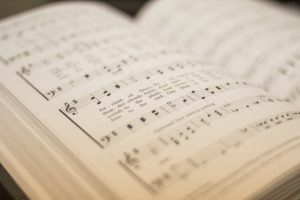I was happy to see the First Presidency’s letter this week where they asked temple workers and patrons to wear masks. But I have to admit that I’m really puzzled by the wording. They’re asking patrons and workers to wear masks? Why not require it? I mean, the Church owns the temples, after all. They can set the rules there. It’s not like with vaccination, where the Church really has no control, but which the First Presidency urged us to do just last month (and reiterated in this letter). Couldn’t they at least urge mask-wearing in the temple? Saying that people are asked to wear masks just sounds far weaker than I would have expected.
I worked in a couple of public libraries for a number of years, and in one, people were limited to checking out no more than five DVDs at a time. A sign next to the DVD section said something like “Please take no more than five DVDs.” Someone once asked me why the sign said “please,” because it made it sound like a request. We had the rule, so why not just say what it was? Anyway, I feel like the First Presidency statement brings up the same question. If it’s announcing a rule that people have to wear masks to go in the temple, the letter’s soft language is failing to communicate, because I’ve already seen people arguing online that they can go to the temple unmasked because this is only a request.

I think it’s stating a rule, but they just got carried away in softening their language. Here’s the full paragraph from the letter I’m taking the quote from.
As cases of COVID-19 increase in many areas, we want to do everything possible to allow temples to remain open. Therefore, effective immediately, all temple patrons and workers are asked to wear face masks at all times while in the temple. These safety protocols are temporary, based on COVID-19 conditions, and will be rescinded as soon as circumstances permit.
Here are reasons why I think the letter is making a rule:
- It says “effective immediately.” If they were only making a request, timing wouldn’t matter, as not everyone would be expected to comply anyway. When they’re making a new rule, though, they need to be explicit about when it starts, so saying when it becomes effective signals that it’s a rule.

